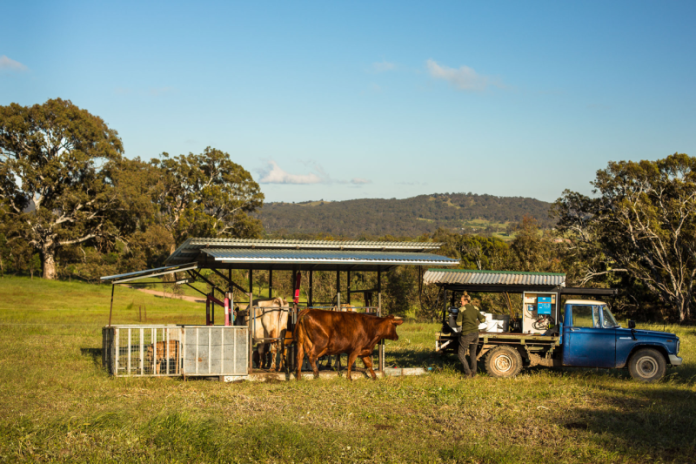Cow manure is one of the best manures for our compost pile and many early compost recipes recommended cow (dairy) or cattle (meat) manure as one of the major ingredients in a good compost recipe.
The question is, can we still get our hands on a good source of it?
Sir Albert Howard, the father of organic agriculture and compost’s early evangelist in Europe, went so far as to recommend that farms keep cattle primarily for the manure they bring to the farm’s ecosystem.
Years later, similar thinking can be seen in Alan Savoury’s ‘holistic management’ approach to farming, using the regular movement of cattle (and other animals) across land to build up, rather than reduce fertility. In these systems, grazing and manuring take place for short, intense periods before animals are moved to fresh pasture. The land is then well rested to re-grow its vegetation and integrate the rich manuring from the animals.
A great local example of this kind of regenerative farming practice is Tess Sellar, who runs a micro dairy of 10 milking cows and a bull at the Harcourt Farming Coop, selling milk locally in returnable bottles through subscription. Tess moves the cows around the farm regularly, taking a mobile milking parlour out to the cows. All the fertility from the cows’ manure and urine fertilises the soil and builds the health to grow the pasture for next year’s feed and beyond.
I ask Tess if she’d sell some of her cow manure.
“’I’m not selling my soil’s fertility!” she laughs.
Clearly, the manure from farms using these more regenerative approaches, whether large or small, is just not going to be available to home composters.
Most of the available bagged or bulk cow manure we can buy comes from more industrial agricultural processes. Large modern dairies have many hundreds of cows being milked twice daily. The dairy floors and the access paths the cows use to get to the dairy end up deep in cow manure.
Hosing and cleaning the dairy and yards becomes a substantial job for large farms with big water and energy implications. Getting the manure, or ‘liquid effluent’ away from the dairy or yards before it creates a disease problem can become the main objective, rather than cycling the nutrients on the farm.
Similarly, with ‘feed lots’ where cattle are penned and fattened up before slaughter, the swift removal of the manure, rather than its reuse, becomes the priority.
Apart from the animal health concerns we might have about these farming practices, the quality of the manure it produces might also be questionable. Given these things, it’s hard to recommend the cow manure we can access to backyard composters.
Although I’d love to be adding some rich cow manure to my compost, I do know it is better left feeding the soil of the farm I get my milk or meat from, rather than taking those nutrients from where they are most needed.
– Joel Meadows works with *Yes In My Back Yard, (YIMBY), a community-scale composting initiative in Castlemaine and surrounds. Send questions or comments to hello@yimbycompost.com, or to book in for a compost workshop.







